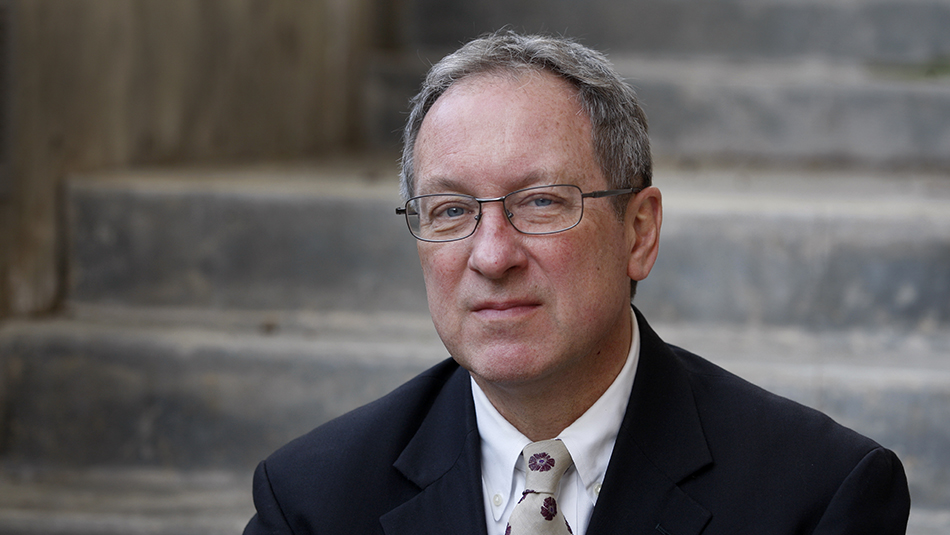
Blum Center director takes on additional role
Richard Matthew, professor of urban planning and public policy and director of UC Irvine’s Blum Center for Poverty Alleviation, has been appointed the research director for climate change and international security for a new University of California initiative. The initiative is part of the UC’s Institute on Global Conflict and Cooperation (IGCC).
“The gap between what science demonstrates we need to do, and what the world’s political and economic leaders are in fact doing to increase carbon storage, reduce emissions and help people adapt to increasingly severe droughts, fires, heat waves and floods, is enormous,” Matthew says. “We are in danger of leaving future generations a world that is volatile and, in many areas, uninhabitable. This new initiative will mobilize the considerable resources and expertise of the UC system around critically important questions about the human and international security implications of climate change.”
For example, he says, “could longstanding forms of cooperation around shared water resources give way to new forms of conflict? If large numbers of people are displaced by climate impacts, how can we cooperate to manage this scale of migration? How might the shocks and stresses of climate change amplify threats like pandemic disease, make borders more challenging to manage, or trigger an explosion of humanitarian crises? We need our best minds studying complex climate security issues and identifying viable ways to promote peace, dignity and human flourishing.”
IGCC is a research network comprised of scholars from across the University of California and the Los Alamos and Lawrence Livermore National Laboratories who produce and use research to help build a more peaceful, prosperous world. Their focus is on challenges that have the potential to lead to wide-scale conflict, and that can benefit from global cooperation to solve. They study traditional security issues — defense innovation, strategy and deterrence, nuclear weapons policy, and security cooperation — and emerging and non-traditional challenges such as environmental threats, geoeconomics and great power competition, and threats to democracy. In each area, IGCC builds diverse, multidisciplinary research teams that analyze the causes and consequences of global conflict — and help develop practical solutions.
The Institute is based at the School of Global Policy and Strategy at UC San Diego.
Besides his new role and leading UCI's Blum Center, Matthew, who has a B.A. in political science from McGill University and an M.A. ad Ph.D. in politics from Princeton University, also is a senior fellow at the International Institute for Sustainable Development; a member of the United Nations Expert Group on Environment, Conflict and Peacebuilding; a member of International Union for the Conservation of Nature’s Commission on Environment, Economic and Social Policy and co-chair of its Task Force on Conservation, Migration and Conflict; and vice president of the Environmental Peacebuilding Association.
His research explores challenges at the intersection of three sets of variables:
- nature loss and climate change;
- poverty and inequality; and
- disaster, displacement and violent conflict.
Matthew's research focuses on environmental peacebuilding, climate change and migration, climate change and planetary health, and the co-development of visualization tools using big data and local knowledge to provide practical hazard risk management support to communities that are highly vulnerable to flood and other extreme events.
Over the past 25 years, he has done extensive fieldwork in conflict and disaster zones in Cambodia, the Democratic Republic of the Congo (DRC), Eswatini, Malawi, Mexico, Nepal, Pakistan, Paraguay, Rwanda, and Sierra Leone. He served on UN humanitarian and peacebuilding missions in DRC, Rwanda, and Sierra Leone. He has given three TEDx talks and has been a featured storyteller on The Moth twice. He recently participated in the World Bank’s KNOMAD project, as well as the development of several whitepapers, including an IOM-led effort on environmental peacebuilding and another related to the Ecological Threat Register. He is an editor of the journal Environment and Security. He has more than 200 publications including the 2021 Routledge Handbook of Environmental Security, and he was the lead author of the United Nations report, “From Conflict to Peacebuilding: The Role of Natural Resources and the Environment.”
— Mimi Ko Cruz